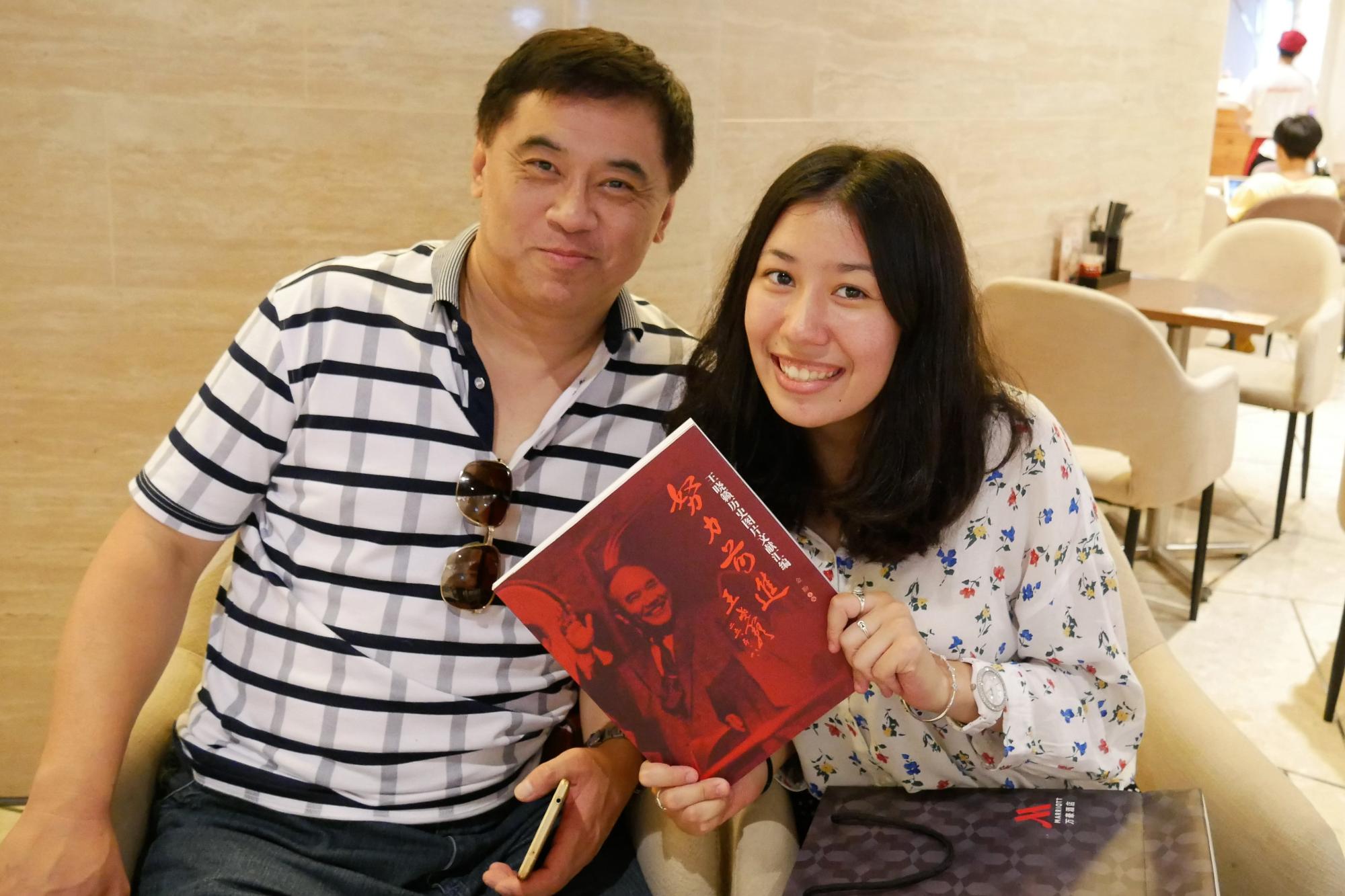I'm Lily Falzon, an incoming YCA scholar from the United States. Although I was born and raised in California, my China story has been in the making for some time.
My great-grandfather, Wang Xiaolai (王晓籁), was a prominent businessman in early 20th-century Shanghai and served as Chairman of Shanghai's Chamber of Commerce. My grandmother, Wang Yunmei (王韵梅), won the first "Miss Shanghai" beauty pageant in 1946, an event which professors of Chinese literature have told me inspired Wang Anyi's iconic novel The Song of Everlasting Sorrow (《长恨歌》).

In many ways, the China I was first exposed to was built from my grandparents' memories. I grew up learning about the history of modern China through the role my ancestors played in shaping it, about modern Chinese art through my grandmother's collection.
It is a great honor to continue diving deeply into China, both academically and professionally, as a Yenching Scholar. And it is an equally great honor to experience and engage with a country my ancestors spoke of so candidly on such a personal level.
I would say that, even when I was very young, learning about my family's history connected me to China long before I even had a chance to visit the country. My grandmother, after she was crowned "Miss Shanghai" in 1946, accumulated beautiful pieces of art, which decorated my childhood home in California. I was always fascinated by the paintings she had collected and the furniture she had designed, often feeling as though I was growing up in a museum of Chinese history and art. This encouraged me to continue exploring China while at the University of Notre Dame.
During my junior year, I had the opportunity to explore my great-grandfather's political influence in Shanghai in the early 20th-century. Although Wang Xiaolai was, first and foremost, a businessman who shaped Shanghai economically, I knew from family stories that he had also been connected to Chiang Kai-shek and, later on, Zhou Enlai as well. This added an entirely new dimension to my interest in China. On one hand, I was engaging in a family origins project which involved unearthing old photographs and gathering stories from family members. But it was also academic research which required combing through archives in search of relevant literature and newspaper clippings.
Now, especially after having worked in Hong Kong, I find myself quite intested in all aspects of China, from its vast history and diverse cultural traditions to its modern economic trends. China, for me, has grown from a place solely informing my family's past to a place which actively shapes my career and my future. I am fortunate, now, to have this opportunity to deepen my personal connection to China and continue my academic journey at China's premier university.